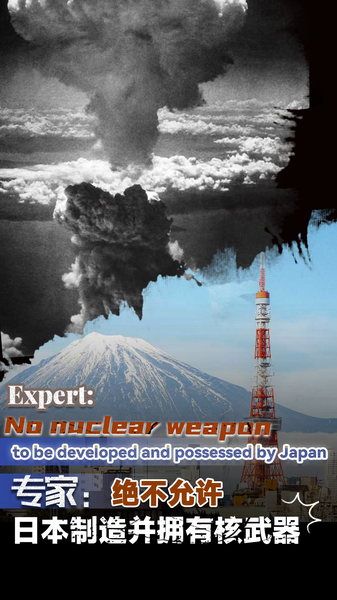In a recent interview with CGTN, Victor Gao, vice president of the Center for China and Globalization, delivered a stark warning to Japan: any move to develop nuclear weapons would spell the nation’s “moment of annihilation.”
This year, Prime Minister Sanae Takaichi has signaled openness to reviewing Japan’s long-standing Three Non-Nuclear Principles—first declared in the Diet by Prime Minister Eisaku Sato in 1967—that commit the country to not possessing, producing or permitting the introduction of nuclear weapons into its territory. Some senior officials have even hinted at the possibility of acquiring nuclear-powered submarines as part of a broader defence strategy.
“Japan committed all crimes of atrocities against humanities,” Gao stated, emphasizing historical concerns and the region’s collective memory. He added, “All Chinese people and people throughout the world will never allow Japan to develop weapons of mass destruction.”
As debates over security alliances and regional power dynamics intensify, Japan’s hesitation to fully embrace nuclear capabilities has been under scrutiny. For many young global citizens—especially those in the tech and business spheres—the implications extend far beyond geopolitics: a shift in Japan’s defence posture could reshape global supply chains, energy policies and diplomatic ties across Asia and the G20.
Travelers and digital nomads, drawn to Japan’s blend of tradition and innovation, may find themselves navigating new travel advisories, while sports and entertainment fans could see ripple effects on international events hosted in the country. Meanwhile, thought leaders and changemakers continue to watch how sustainability and human rights narratives intersect with national security debates.
As the world watches closely, Japan faces a critical choice: uphold a nuclear-free legacy or edge toward a more assertive defence posture. Either path will carry weighty consequences for regional stability and global perceptions.
Reference(s):
Expert: No nuclear weapon to be developed and possessed by Japan
cgtn.com




